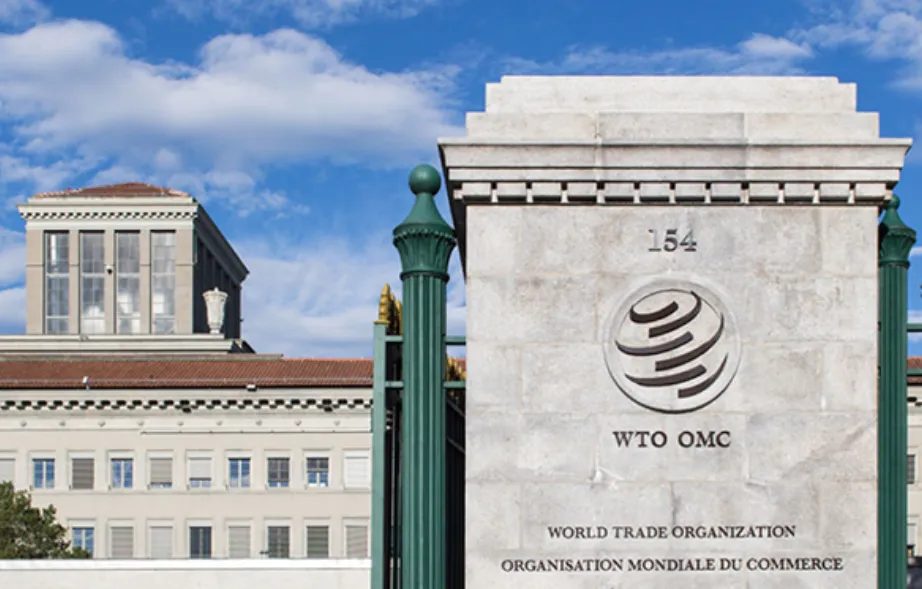
The World Trade Organization (WTO) has been crucial in facilitating economic globalisation and promoting global trade liberalisation since its establishment in 1995 as a global institution governing international trade. Yet, in recent years, the WTO has faced numerous challenges, including criticism regarding lack of equity, transparency, and effectiveness. Yet, past attempts at infusing equity and transparency in its mandate have not moved beyond rhetoric. The Doha Development Round in 2001, the Bali Package in 2013, the Nairobi Package in 2015, and the Joint Statement Initiative in 2017 have failed to address the core concerns of WTO’s members, especially the developing economies.
< style="color: #0069a6">In recent years, the WTO has faced numerous challenges, including criticism regarding lack of equity, transparency, and effectiveness. Yet, past attempts at infusing equity and transparency in its mandate have not moved beyond rhetoric.
< style="color: #163449">Rise of other-isms
The past two decades have witnessed the rise of regional blocs and robust bilateral and trilateral partnerships. This emerging trend threatens the relevance of the WTO and arouses concerns about an eroding multilateral trading system.
Bilateral partnerships, more specifically, the pursuit of bilateral trade agreements, have gained momentum in recent years. Numerous countries have pursued bilateral trade partnerships to secure their national economic interests, preferring to disengage from the WTO’s multilateral framework. Similarly, regional trade agreements, such as the European Union (EU), the Comprehensive and Progressive Agreement for Trans-Pacific Partnership (CPTPP), and the African Continental Free Trade Area (AfCFTA), have also proliferated in recent years. These trade partnerships promote regional integration and deepen economic ties among member countries outside the WTO’s purview.
While bilateral economic partnerships and regional trade agreements facilitate increased and targeted market access and reduced tariffs, their proliferation raises concerns about the potential negative impacts on smaller economies, the regionalisation of global trade rules, trade diversion, exclusion of non-member countries, and the overall coherence in international trade law. The rise of bilateralism and regional blocs, thus, challenges the multilateral trading system and undermines the principles of equity, transparency, and effectiveness that the WTO embodies. This growing trend to opt for bilateral, trilateral, minilateral, and regional trading mechanisms indicates the increasing mistrust of countries in the global trading system established under the WTO.
< style="color: #163449">Reforms and reshaping the global order
Reforming the WTO is a Herculean task requiring a multifaceted yet cohesive and concerted approach to resolving its myriad issues, including transparency in operations, dispute resolution mechanism, and reliable negotiating processes. This effort calls for a comprehensive and inclusive approach considering diverse interests and needs, particularly of developing countries. To begin with, WTO reforms must ensure developing countries have a significant say in decision-making processes and that their concerns over issues like cultural subsidies, intellectual property, etc. are adequately addressed.
Strengthening the interlinkages between multilateral organisations will be instrumental in aligning the WTO's mandate with broader global goals, such as the Sustainable Development Goals (SDGs), and promoting a more holistic and inclusive approach to international trade. Collaboration and cooperation with multilateral institutions such as the United Nations and its specialised agencies are also vital to the WTO reformation agenda. Coordination amongst multilateral institutions will ensure a coherent and collaborative approach towards global economic governance.
A critical area that requires reform in the WTO is equity. The current system is often criticised for favouring developed countries over developing countries, leading to an imbalance in global trade relations. Developing countries often face challenges in fully participating in international trade due to trade barriers, lack of infrastructure, and capacity constraints. By reforming the WTO to promote equity, all countries, regardless of their size and bargaining power, can have a level playing field and equal opportunities to participate in global trade negotiations. An equitable WTO will prevent the marginalisation of smaller economies and promote a more inclusive and fair global trade system. Importantly, reforming the WTO will address the fragmentation and trade diversions caused by regional blocs.
A WTO reformation agenda will also provide a fillip in enhancing transparency in global trade governance. The decision-making processes within the organisation have increasingly attracted criticism for their opacity and limited involvement of developing countries and other stakeholders. This lack of transparency undermines the legitimacy of the WTO and erodes trust amongst its members. Transparency within the WTO will help the organisation regain greater acceptance and confidence as a multilateral institution based on transparency, good governance, and accountability to the changing realities of international trade.
In recent years, the WTO’s dispute settlement mechanism has come under growing criticism in the face of mounting challenges, including delays in resolving disputes and enforcing rulings. The WTO’s lack of a resilient dispute settlement mechanism has questioned the organisation’s effectiveness. By streamlining and improving the effectiveness of the dispute settlement process, the WTO can provide a reliable and efficient mechanism for resolving trade disputes, reducing the incentive for countries to resort to bilateral or regional agreements. Additionally, by delivering tangible outcomes in trade facilitation, services, and e-commerce, the WTO can demonstrate its relevance and effectiveness in addressing 21st-century international trade and imperatives.
Furthermore, the WTO should also consider incorporating environmental and social considerations into its rules and regulations. Climate change, labour standards, and sustainable development are critical global challenges that impact international trade. Including provisions that promote environmental sustainability, social responsibility, and fair labour practices in the WTO's framework can help ensure that trade contributes to sustainable development and benefits all stakeholders. However, it is unfair for developing nations such as India, South Africa, Brazil, etc., to bear the brunt of these obligations when the developed world built itself on the back of lax labour standards, climate exploitation, and rapid but unequal and unsustainable economic growth. The reformed agenda of the WTO must include the principle of “Common but Differentiated Responsibilities”, as propounded by the Paris Agreement, for equitable and fair international trade.
< style="color: #0069a6">Like the WTO, even the G20 began its journey as an economic grouping in the 1990s. India, today, has taken a leading role in pushing for the Global South agenda in the G20 grouping, as is visible in the Indian government’s rhetoric at the grouping’s meetings. Through such strong initiatives, India has emerged as an action-taking leader of the Global South.
Under its G20 presidency, India has pledged to give a voice to the developing nations, which have faced the “tragic consequences” of the failure of global governance. Ironically, the G20 began its journey in 1999, in the aftermath of the Asian Financial Crisis, as a forum to discuss global economic and financial issues. The G20 moment, thus, gives India an opportunity to push the global action agenda for WTO reforms and live up to its promise of representing the interests of the Global South in global governance structures.
The views expressed above belong to the author(s). ORF research and analyses now available on Telegram! Click here to access our curated content — blogs, longforms and interviews.




 PREV
PREV


